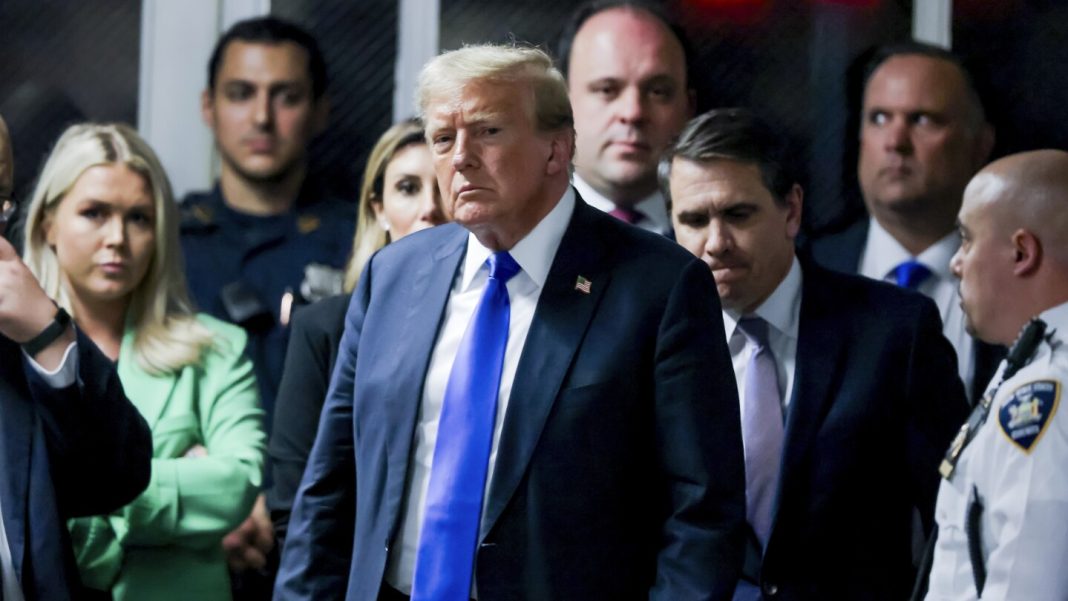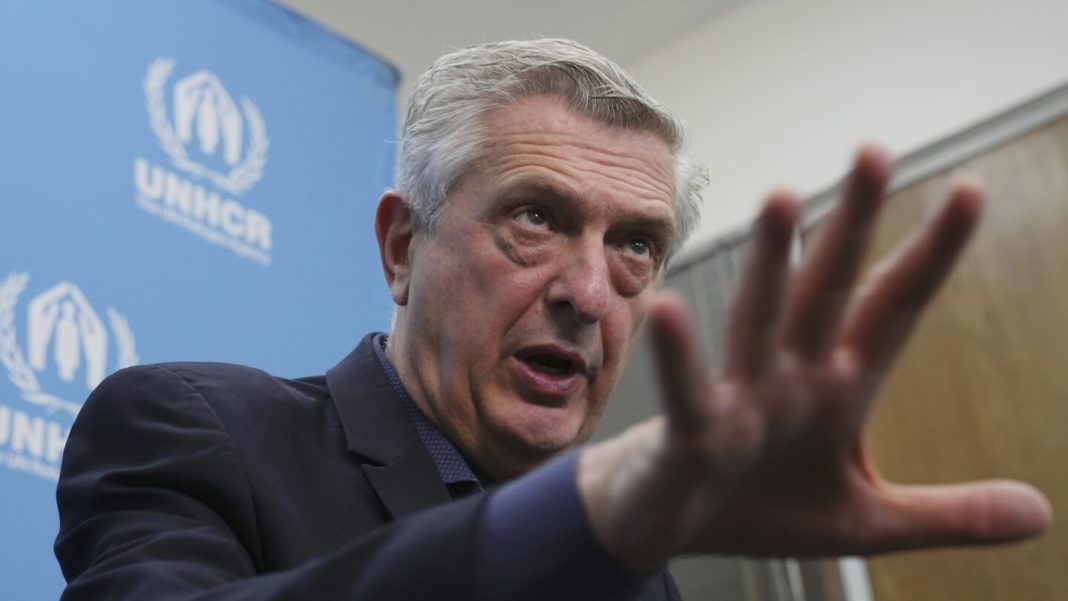NEW YORK (news agencies) — Donald Trump’s conviction on 34 felony counts marks the end of the former president’s historic hush money trial, but the fight over the case is far from over.
Now comes the sentencing and the potential for a prison sentence. A lengthy appellate process. And all the while, the presumptive Republican presidential nominee still has to deal with three more criminal cases and a campaign that could see him return to the White House.
After more than nine hours of deliberations over two days, the Manhattan jury found Trump guilty of falsifying business records in the case stemming from a hush money payment to porn actor Stormy Daniels during his 2016 presidential campaign.
Trump angrily denounced the trial as a “disgrace,” telling reporters he’s an “innocent man.”
Some key takeaways from the jury’s decision:
The big question now is whether Trump could go to prison. The answer is uncertain. Judge Juan M. Merchan set sentencing for July 11, just days before Republicans are formally set to nominate Trump for president.
The charge of falsifying business records is a Class E felony in New York, the lowest tier of felony charges in the state. It is punishable by up to four years in prison, though the punishment would ultimately be up to the judge, and there’s no guarantee he would give Trump time behind bars. Manhattan District Attorney Alvin Bragg declined to say whether prosecutors would seek prison time.
It’s unclear to what extent the judge may factor in the political and logistical complexities of jailing a former president who is running to reclaim the White House. Other punishments could include a fine or probation. And it’s possible the judge would allow Trump to avoid serving any punishment until after he exhausts his appeals.
Trump faces the threat of more serious prison time in the three other cases he’s facing, but those cases have gotten bogged down by appeals and other legal fights, so it remains unclear whether any of them will go to trial before the November election.
The conviction doesn’t bar Trump from continuing his campaign or becoming president. And he can still vote for himself in his home state of Florida as long as he stays out of prison in New York state.
Trump’s daughter-in-law Lara Trump, who serves as co-chair of the Republican National Committee, said in a Fox News Channel interview on Thursday that Trump would do virtual rallies and campaign events if he’s convicted and sentenced to home confinement.
In a deeply divided America, it’s unclear whether Trump’s once-unimaginable criminal conviction will have any impact at all on the election.
Leading strategists in both parties believe that Trump still remains well-positioned to defeat President Joe Biden, even as the Republican now faces the prospect of a prison sentence and three separate criminal cases still outstanding.
In the short term, at least, there were immediate signs that the guilty verdict was helping to unify the Republican Party’s disparate factions as GOP officials across the political spectrum rallied behind their embattled presumptive presidential nominee and his campaign reported a flood of fundraising dollars within hours of the verdict.
There has been some polling conducted on the prospect of a guilty verdict, although such hypothetical scenarios are notoriously difficult to predict. A recent ABC News/Ipsos poll found that only 4% of Trump’s supporters said they would withdraw their backing if he’s convicted of a felony, though another 16% said they would reconsider it.
After Trump is sentenced, he can challenge his conviction in a New York appellate court and possibly the state’s highest court. Trump’s lawyers have already been laying the groundwork for appeals with objections to the charges and rulings at trial.
The defense has accused the judge of bias, citing his daughter’s work heading a firm whose clients have included Biden, Vice President Kamala Harris and other Democrats. The judge refused the defense’s request to remove himself from the case, saying he was certain of his “ability to be fair and impartial.”
Trump’s lawyers may also raise on appeal the judge’s ruling limiting the testimony of a potential defense expert witness. The defense wanted to call Bradley Smith, who served on the Federal Election Commission, to rebut the prosecution’s contention that the hush money payments amounted to campaign finance violations.
But the defense ended up not having him testify after the judge ruled he could give general background on the FEC but couldn’t interpret how federal campaign finance laws apply to the facts of Trump’s case or opine on whether Trump’s alleged actions violate those laws. There are often guardrails around expert testimony on legal matters, on the basis that it’s up to a judge — not an expert hired by one side or the other — to instruct jurors on applicable laws.
The defense may also argue that jurors were improperly allowed to hear sometimes graphic testimony from Daniels about her alleged 2006 sexual encounter with Trump, which he denies ever happened. The defense unsuccessfully pushed for a mistrial over the tawdry details prosecutors elicited from Daniels. Defense lawyer Todd Blanche argued Daniels’ description of a power imbalance with the older, taller Trump, was a “dog whistle for rape,” irrelevant to the charges at hand, and “the kind of testimony that makes it impossible to come back from.”




